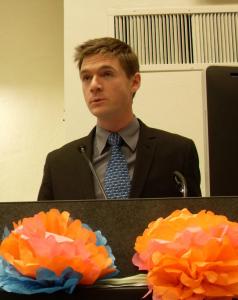Introduction to ‘A Xicana Codex of Changing Consciousness’
Opening Section
The first piece of writing I read by Cherríe Moraga was a play called Watsonville: Some Place Not Here. It is a theatre piece about a group of people fighting to survive in Central California, a workers’ strike in a cannery, and a vision, perhaps of the Virgen de Guadalupe, who appears to the protagonist in the trees. I was assigned the play for a course on documentary theatre and after I finished it, I immediately read another one: this entitled A Circle in the Dirt: el Pueblo de East Palo Alto. As a theatre artist, my connection to the work was immediate: here was a writer who took the forms of U.S. American theatrical realism and pushed them out the window. This theatre took the notion of the Epic that theatre-people call “Brechtian” and told stories about California, about the people who work and make their homes there; this theatre represented these Chicano lives in an epic fashion, the main characters in a history of a land on which great struggles have taken place. Moraga’s plays, which also include Shadow of a Man, Giving Up the Ghost, Heroes and Saints, and the widely anthologized The Hungry Woman: a Mexican Medea, have consistently and relentlessly pushed the limits of the U.S. American theatre: toward ritual, toward pedagogy, toward an acknowledgement of its own colonizing history. But if my excitement for the formal novelty of these dramas was intellectual, their spiritual resonance for me was primarily linguistic. Because I grew up a gringo, I didn’t grow up speaking Spanish at home, but I also grew up in Los Angeles, so I grew up hearing Spanish, or to be more accurate, I grew up hearing Spanish and English fluidly spoken together – as though they were one language whose words were interchangeable. In other words, Cherríe Moraga’s plays felt like home to me, like I was hearing the story of the land where I was grown in the language I knew it spoke.
Moraga insists upon the importance of speaking in her own tongue. “Spanish words,” as she notes in an introduction to her new book, “are neither translated nor italicized” in her writing “in order to reflect a bilingual Xicana sensibility.” This is an insistence on the materiality of presence, a demand for the recognition of a person on her own terms. It is an artistic, as well as a political, strategy – one that fights what Gloria Anzaldúa described as linguistic terrorism. “If a person” she says in Borderlands/La Frontera, “has a low estimation of my native tongue, she also has a low estimation of me.” Moraga’s writings are openly defiant of this linguistic terrorism, combating it with a mouth she once called “too big to close.”
In 1981, the first edition of the groundbreaking anthology This Bridge Called My Back: Writings by Radical Women of Color appeared. This 250-page volume, edited by Cherríe Moraga and Gloria Anzaldúa, has become the formative text for countless feminists, queers, and people who wanted radically to reconsider their own nation. I, like many of my friends and colleagues, return to this volume often. And I always find in its pages a set of extraordinary challenges: a call to fight the racism inside myself, inside each of us; a call for the recognition of the desiring and desired lesbian body; a call for me to acknowledge the unearned privileges conferred upon me by my whiteness; a call for me actively to identify as woman, as queer, as feminist. Moraga’s poetry and prose are filled with challenges such as these: provocations, ruminations, and identifications that declare a fierce lesbian positionality that is bonded to a powerful Chicana spirit, and that, in her more recent writings, have turned toward the recognition of the brevity of life, the difficulties of teaching revolution to a child, and a profound re-vision of earthbound temporalities and chronologies. Her collections Loving in the War Years and The Last Generation are intensely personal: to read them is to feel as though one knows Cherríe Moraga intimately, so bare does she lay her own fears and desires to her readers, so honestly does she report her own pettinesses, her quickness to anger, the silences she wishes she had managed to defeat.
For over a decade, Moraga has served as an Artist in Residence in the Department of Drama at Stanford University, currently sharing a joint appointment with Comparative Studies in Race & Ethnicity, where she teaches courses in Creative Writing, Xicana-Indigenous Performance, Latino/Queer Performance, Indigenous Identity in Diaspora in the Arts, and Playwriting. Her pedagogy, as well as her extraordinary body of artistic work, puts into practice the collectivity and community that it espouses politically. Moraga’s essays are liberally peppered with the names of friends, comadres, artists, and students, whom she cites as inspirations or teachers, fellow travelers who were able to give her an outlook or perspective that she hadn’t before seen. In Moraga’s work, these are not academic citations, they are practical acknowledgements that anything that we might call “success” – in activism, art, familia, and even academia – does not happen in a vacuum. Her work makes clear the responsibility that together we share for the world.



